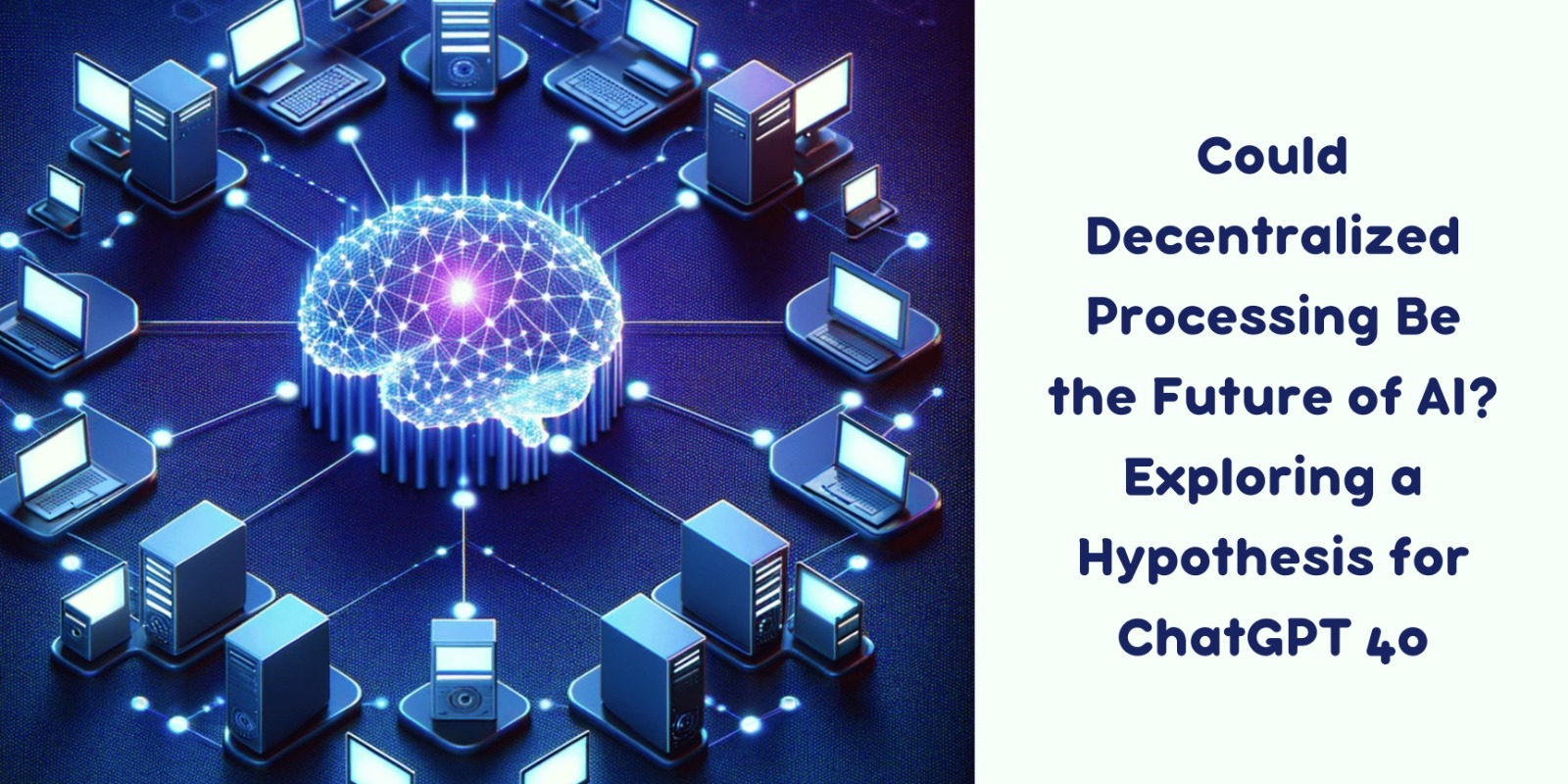Could Decentralized Processing Be the Future of AI? Exploring a Hypothesis for ChatGPT 4o

With the recent public release of GPT-4o, a significant shift has occurred in the accessibility and potential applications of advanced AI. This move has sparked numerous discussions and hypotheses about the underlying strategies and future directions of large language models (LLMs). One intriguing perspective is the possibility of decentralized processing—could ChatGPT 4o be leveraging the power of peer-to-peer networks to distribute its computational load? Let's delve into this hypothesis and explore the potential implications.
The Hypothesis: Decentralized Processing
The idea here is that with ChatGPT applications being rolled out on desktops, OpenAI might be utilizing the collective computational power of users' devices. Similar to how Spotify reduces server costs through peer-to-peer sharing, this approach could potentially allow ChatGPT to run its models by harnessing the processing capabilities of individual systems where it is installed. By doing so, it could mitigate the extensive server costs associated with offering such advanced AI for free.
Why This Hypothesis Makes Sense
- Cost Efficiency: Running large language models like GPT-4o requires substantial computational resources, which translates to high server costs. By distributing some of this processing load across users' devices, OpenAI could significantly reduce these expenses.
- Scalability: A decentralized approach could enhance the scalability of AI services. As more users install ChatGPT on their devices, the overall processing power available to the network increases, potentially allowing for more efficient and faster AI interactions.
- Increased Accessibility: Offering advanced AI for free to the public democratizes access to technology, enabling more individuals and businesses to benefit from its capabilities. This aligns with OpenAI’s mission to ensure that artificial general intelligence benefits all of humanity.
Challenges and Considerations
While the hypothesis is compelling, several challenges and considerations would need to be addressed for decentralized processing to be viable:
- Technical Feasibility: Managing a decentralized network for AI processing would be technically complex. It would require sophisticated algorithms to distribute tasks efficiently and ensure seamless integration and performance.
- User Consent and Transparency: For this model to be ethical, users must be fully informed and provide consent for their device's resources to be used. Transparency about how much processing power is utilized and its impact on device performance would be crucial.
- Security and Privacy: Running AI models across multiple devices introduces security and privacy risks. Protecting user data and maintaining the integrity of the AI model would be significant concerns.
- Performance and Reliability: The variability in device capabilities and network conditions could affect the system's overall performance and reliability. Ensuring a consistent and smooth user experience would be essential.
Inviting Thought and Discussion
While this hypothesis remains speculative, it invites thought into the future of AI and how large language models could be decentralized. As we advance into an era where AI becomes increasingly integrated into our daily lives, exploring innovative approaches to enhance efficiency and accessibility is crucial.
Decentralized processing could revolutionize how we interact with AI, making it more scalable, cost-effective, and accessible. It challenges us to think about the ethical implications and the technical innovations required to make such a system feasible.
Conclusion
We invite you to share your thoughts and insights on this hypothesis. How do you envision the future of AI processing? Could decentralized networks be the key to making advanced AI more accessible and efficient? Join the discussion and let’s explore the possibilities together.

